RESISTANCE CINEMA Presents “RADIOACTIVISTS – Protest In Japan” a film by JULIA LESER and CLARISSA SEIDEL, (2011, 73 min)
WHEN: Sunday August 5th, 1:15 PM
WHERE: Community Church NY Gallery Room, 28 East 35th st. btwn Park & Madison Aves.
ADMISSION: Free, donations appreciated
Has the Arab Spring become a global phenomenon? Two young German women staying in Tokyo in the spring of 2011 have captured on film the emergence of a dynamic new grassroots anti-nuclear movement that is stirring Japanese political culture like it hasn’t been in decades.
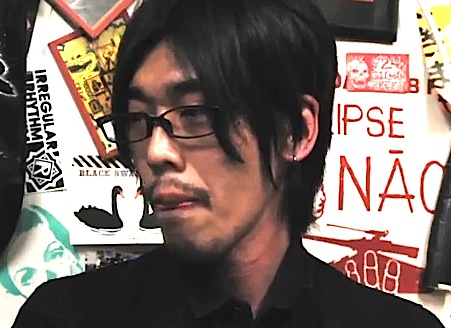 Since the Fukushima catastrophe on March 11, 2011 Japan has been experiencing socio-political tremors of historical significance. The catastrophe that shattered the northeast of Japan was three fold; first the 9.0 earthquake, then the tsunami, and finally the manmade catastrophe of Fukushima is already showing its consequences, that will probably last for the next decades. The full dimension of the catastrophe cannot be understood today, but still, we are getting aware of the socio-political
Since the Fukushima catastrophe on March 11, 2011 Japan has been experiencing socio-political tremors of historical significance. The catastrophe that shattered the northeast of Japan was three fold; first the 9.0 earthquake, then the tsunami, and finally the manmade catastrophe of Fukushima is already showing its consequences, that will probably last for the next decades. The full dimension of the catastrophe cannot be understood today, but still, we are getting aware of the socio-political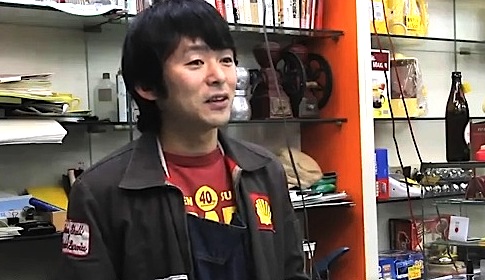 tremors of historical significance. Especially in Tokyo, the capital of Japan, a political interest is arousing just now, a protest against the disinformation- and nuclear policies of the iron triangle, consisting of the government, Tepco and the Nuclear Safety Agency.
tremors of historical significance. Especially in Tokyo, the capital of Japan, a political interest is arousing just now, a protest against the disinformation- and nuclear policies of the iron triangle, consisting of the government, Tepco and the Nuclear Safety Agency.
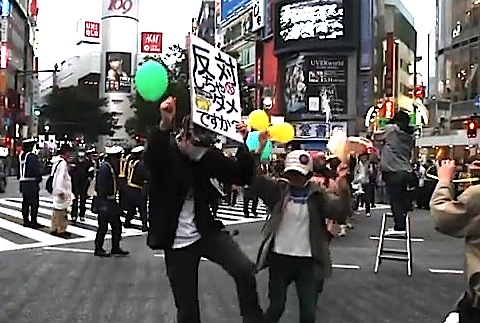 Street protests in Japan are considered a rather rare sight. The present protest culture in Japan seems to be not really well-established, compared to other countries. There is merely one exception: “Shir?to no ran“ (Amateur’s Revolt), a group of creative activists, who fight for more freedom in public space and an inventive Do It Yourself-culture in the alternative area of K?enji, Tokyo.
Street protests in Japan are considered a rather rare sight. The present protest culture in Japan seems to be not really well-established, compared to other countries. There is merely one exception: “Shir?to no ran“ (Amateur’s Revolt), a group of creative activists, who fight for more freedom in public space and an inventive Do It Yourself-culture in the alternative area of K?enji, Tokyo.
The activists involved in “Shir?to no ran” organized the biggest demonstration in Japan since the 1970s, which took place on April 10th, just one month after the earthquake. This protest gathered more than 15.000 people demonstrating against nuclear power. Furthermore,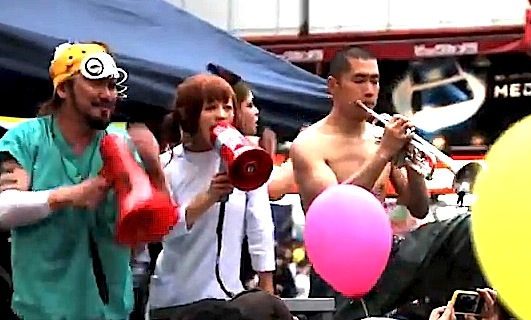 the mobilization of those anti-nuclear protests brought up a lot more subjects for discussion, for instance the work and living conditions in contemporary capitalism and globalization.
the mobilization of those anti-nuclear protests brought up a lot more subjects for discussion, for instance the work and living conditions in contemporary capitalism and globalization.
The documentary Radioactivists explores the Japanese protest culture under the  effects of Fukushima and to illuminate the backgrounds of the current movements, protests and critical voices, which keep getting louder, not only in Japan. The situation in Japan makes clear that a new phase of political and social fight has just begun, which forces us to respond now.
effects of Fukushima and to illuminate the backgrounds of the current movements, protests and critical voices, which keep getting louder, not only in Japan. The situation in Japan makes clear that a new phase of political and social fight has just begun, which forces us to respond now.

RADIOACTIVISTS is a documentary film project by the German film-makers Julia Leser and Clarissa Seidel. The two were shooting in Tokyo from end-April to mid-May 2011. They attended the rallies and demonstrations within that time, and talked to all those critical voices about the current situation: scientists, journalists, activists and bloggers.
UPDATE FROM THE NEW YORK TIMES
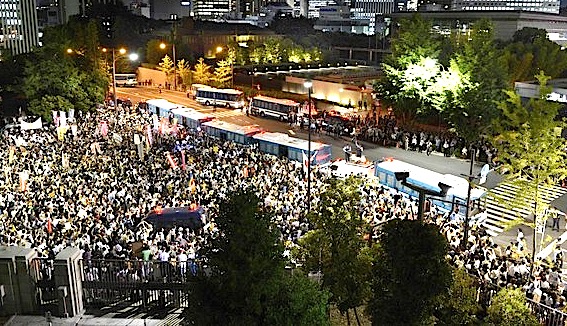 TOKYO – June 29, 2012 - Shouting antinuclear slogans and beating drums, tens of thousands of demonstrators gathered in front of the Japanese prime minister’s residence on Friday in the largest display yet of public anger at the government’s decision to restart a nuclear power plant.
TOKYO – June 29, 2012 - Shouting antinuclear slogans and beating drums, tens of thousands of demonstrators gathered in front of the Japanese prime minister’s residence on Friday in the largest display yet of public anger at the government’s decision to restart a nuclear power plant.
Protesters shouted, "No to restart!" as they held up banners outside Prime Minister Yoshihiko Noda's residence on Friday. The crowd, including women with small children and men in suits coming from work, chanted “No more Fukushimas!” as it filled the broad boulevards near the residence and the national Parliament building, which were cordoned off by the police.
Local news media estimated the crowd at between 20,000 and 45,000, which they described as the largest protest in central Tokyo since the 1960s.